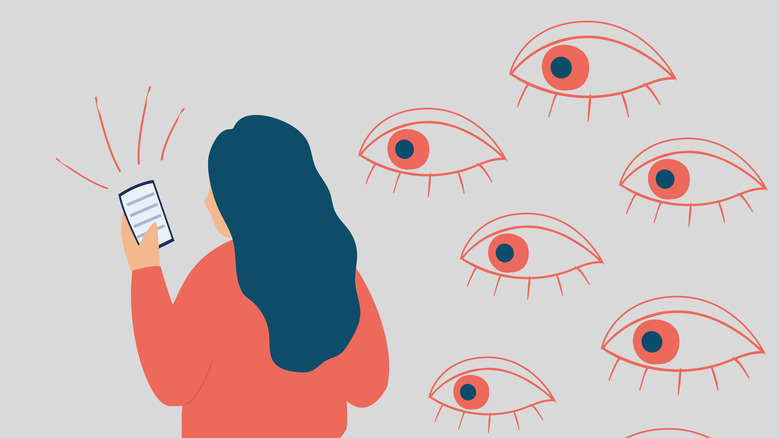Your Favorite Apps May Be Stealing More Data Than You Realize: Here's How To Stop Them
Who actually reads those snooze-fest terms of use and privacy policies that apps put up for download? Pew Research says only about four in 10 adults do. The rest of us are just mindlessly tapping "Agree" like it's some kind of virtual handshake, and who can blame us? These gazillion-word policies are long-winded and full of legalese that the average Joe would need a dictionary (and a lawyer) to understand. No one wants to go through an entire syllabus just to see what new dance is trending on TikTok.
Tech companies continue to take advantage of this oversight to get users' (unwitting) consent to share personal data through apps, so there's a high chance that you have no idea how much information you're giving these apps access to. We did some research to expose which top apps are swiping more than just screen time, but beyond that, we'll also discuss a few key steps you can take to protect your privacy online.
Here's how these top apps are collecting and using your data
Per a Moneymongers study of the top 100 apps, social media apps are the most data-hungry of the lot. Meta apps did not beat the allegations, with Instagram, Facebook, Threads, and Messenger ranking first to fourth, respectively. Each collects an astounding 86% of user data, extending beyond basic contact info to usage data, identifiers, browsing, purchase, location history, and even financial information. All four apps use this data for in-house marketing and advertising purposes. However, this is much more data than they need to operate and about 72% more than what Twitter collects (although Twitter is not exactly blameless either). With the combined reach of Meta apps, the company can use this data to create hyper-specific user profiles that it then sells to third-party advertisers.
Threads is the most invasive among the bunch, according to the study. Being a more recent member of the Meta family, it hasn't been subject to as much scrutiny as its more established siblings, giving it more leeway for user data collection. This privacy risk was part of the reasons why we advised users against joining Threads when it first launched and why the app's release was first prohibited in Europe, which has strict data privacy laws.
Surprisingly, LinkedIn is the fifth app on this list. Despite experiencing significant data breaches in the past, the professional networking app is rarely discussed when it comes to potential online privacy threats. Still, the study reveals that while it collects about 11% less data overall than Meta apps, it still gathers more than is necessary for it to function as a service, including user data on purchases, search and location history, and financial information.
How to protect your data online
Some people believe that sharing personal data is a necessary tradeoff for using the internet, and there's some truth to that. You'll need to share some basic information about yourself to have a pleasant, seamless online experience — which we outline in this explainer about website cookies — but that's not to say you can't control how much or what kind of data you share.
Instead of leaving the terms of your privacy up to the default settings of your apps and devices, here are three simple steps to regain control of your data online.
-
Tweak app tracking permissions: You can turn off location tracking or only grant apps access to that info when you need GPS. Do this on iOS by toggling off the switch in Settings > Privacy > Location Services or adjusting permissions per app. The process is similar on Android: Settings > Location > App Location Permissions > Toggle Off, or adjust per app.
-
Use a privacy-focused browser or private browsing: The incognito mode won't cover your trail entirely, but it offers features that protect your digital footprint from snoopers.
Advertisement -
Use a VPN: If you're serious about online security and privacy, you need a VPN. Short for Virtual Private Networks, they mask your identity and encrypt your data online so that your activity is untraceable to you. Not only can you prevent tracking, but you can also bypass geo-blocking or other such restrictions with VPNs. It's a must-have safety tool if you use public Wi-Fi or work from home, among other reasons. If you're new to this fine art of avoiding virtual espionage, here are our picks for the best VPNs of 2023 to help you get started.


